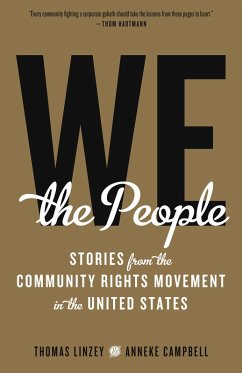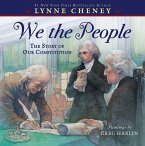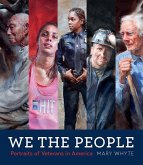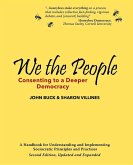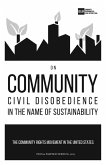We the People offers powerful portraits of communities across the United States that have faced threats from environmentally destructive corporate projects and responded by successfully banning those projects at a local level. We hear the inspiring voices of ordinary citizens and activists practicing a cutting-edge form of organizing developed by the nonprofit law firm, the Community Environmental Legal Defense Fund (CELDF). Their methodology is an answer for the frustrations of untold numbers of activists who have been defeated time and again by corporate political power and legal entitlement.
Instead of fighting against what we don't want, this book can teach us to create from the ground up what we do want, basing our vision in local control and law. By refusing to cooperate with the unjust laws that favor corporate profit over local sustainability, communities can show the way forward, driving their rights into state constitutions and, eventually, into the federal Constitution.
In communities from New Hampshire to Oregon, new forms of local organizing have sprung up to fight fracking, mining, dumping of toxic waste, and industrial agriculture, among other environmental assaults. These communities have recognized that the law has "legalized" the damaging actions of corporations, while providing no recourse against harm, and they have therefore decided to create a new system of law that makes local control and sustainability legal. Starting small, this process has spread from rural Pennsylvania to larger cities and towns, and has resulted in the creation of state networks seeking to amend state constitutions.
This work is about finishing the American Revolution by giving up the illusion of democracy and forging a system of true self-governance. In addition, this is about recognizing in law, for the first time in history, that nature possesses legally enforceable rights of its own.
Instead of fighting against what we don't want, this book can teach us to create from the ground up what we do want, basing our vision in local control and law. By refusing to cooperate with the unjust laws that favor corporate profit over local sustainability, communities can show the way forward, driving their rights into state constitutions and, eventually, into the federal Constitution.
In communities from New Hampshire to Oregon, new forms of local organizing have sprung up to fight fracking, mining, dumping of toxic waste, and industrial agriculture, among other environmental assaults. These communities have recognized that the law has "legalized" the damaging actions of corporations, while providing no recourse against harm, and they have therefore decided to create a new system of law that makes local control and sustainability legal. Starting small, this process has spread from rural Pennsylvania to larger cities and towns, and has resulted in the creation of state networks seeking to amend state constitutions.
This work is about finishing the American Revolution by giving up the illusion of democracy and forging a system of true self-governance. In addition, this is about recognizing in law, for the first time in history, that nature possesses legally enforceable rights of its own.
Dieser Download kann aus rechtlichen Gründen nur mit Rechnungsadresse in A, D ausgeliefert werden.

